By Christina Helmick
Did you know that preparing your child for school starts before they even enter the classroom? School readiness is an essential part of the development of a child before, after, and during their years in school. A child’s success is a parent’s success, and there are many free resources to support the school readiness journey! Here are two free resources for you to check out:
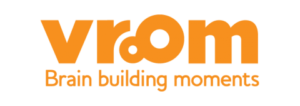 Vroom is a free, bilingual tool that utilizes daily brain building activities that can be incorporated into a family’s daily routine. Activities are based on the child’s age and focus on parent-child engagement. Vroom, an initiative of the Bezos Family Foundation, was developed by a group of dedicated scientists, community leaders and trusted brands with input from community organizations and families like yours. Vroom is providing parents and caregivers with activities to boost early learning.
Vroom is a free, bilingual tool that utilizes daily brain building activities that can be incorporated into a family’s daily routine. Activities are based on the child’s age and focus on parent-child engagement. Vroom, an initiative of the Bezos Family Foundation, was developed by a group of dedicated scientists, community leaders and trusted brands with input from community organizations and families like yours. Vroom is providing parents and caregivers with activities to boost early learning.
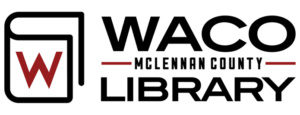 Literacy Kits are another great resource for both parents and children. Waco ISD early childhood experts worked with the library’s staff to make sure the items included are items that will help a child become school ready. These kits can be checked out for up to 21 days. The Literacy Kits are funded by Waco Rotary Club and are available at all Waco-McLennan County libraries.
Literacy Kits are another great resource for both parents and children. Waco ISD early childhood experts worked with the library’s staff to make sure the items included are items that will help a child become school ready. These kits can be checked out for up to 21 days. The Literacy Kits are funded by Waco Rotary Club and are available at all Waco-McLennan County libraries.
The School Readiness Working Group includes more than 20 organizations across the community that are committed to improving school readiness outcomes. This Working Group meets each month to talk about aligning activities and reviews best practices to bring into the Waco community to make sure all students entering school are prepared for success. If you’d like to join this group, send an email to Jillian ([email protected]) today!
The Working Group looks at data each meeting to make sure the strategies the group implements are addressing the outcomes the community agreed upon. In the 2016-2017 school year, 60% of students entering Kindergarten in Waco ISD were ready to learn, compared to 59% across the state. Even more impressive is that in Waco ISD if the kindergartners attended a Texas Public ISD, they were 11% more prepared for school than the state average.
Beyond promoting free resources like Vroom and the Literacy Kits, early childhood leaders in our community have developed a list of 10 important activities to do with your child to encourage school readiness! Here they are:
- Read to your child every day
- Have purposeful conversation
- Play, Talk, Read!
- Explore through movement and play
- Count, Group, Compare
- Create a routine, such as bedtime or bath time
- Take turns and share
- Make and give choices
- Limit access to technology
- Create opportunities to be helpful, such as allowing your child to help wash dishes
Whether you’re a parent, aunt, uncle, grandmother, grandfather, cousin, caregiver, school teacher or a community member dedicated to making sure generations to come are successful in school, it is important to get involved and share activities about school readiness!
Want to learn more about Vroom or the library’s literacy kits? Check out “The Work” page on the Prosper Waco website. If you’d like to engage with other parents and community leaders committed to making sure each child is prepared to enter school, join the School Readiness Working Group by sending an email to Jillian ([email protected]).
 Christina is a graduate of Baylor University with a BA in Journalism, Public Relations & New Media and is currently pursuing a Masters of Business Administration through Tarleton State. She is originally from Washington, D.C., but is proud to call Waco her home. Christina sits on the Board of Directors for Waco Habitat for Humanity and serves as a community advisor for Junior League of Waco. She enjoys spending time with her family and watching Baylor football. Sic ’em Bears!
Christina is a graduate of Baylor University with a BA in Journalism, Public Relations & New Media and is currently pursuing a Masters of Business Administration through Tarleton State. She is originally from Washington, D.C., but is proud to call Waco her home. Christina sits on the Board of Directors for Waco Habitat for Humanity and serves as a community advisor for Junior League of Waco. She enjoys spending time with her family and watching Baylor football. Sic ’em Bears!
The Act Locally Waco blog publishes posts with a connection to these aspirations for Waco. If you are interested in writing for the Act Locally Waco Blog, please email [email protected] for more information.
By Christina Helmick
Like any year, 2017 had its highs and lows. As we enter the holiday season, we choose to focus on the positive developments in Waco and look forward with excitement to the new year. You only have to drive around downtown to be reminded of how much Waco has grown in the last year—new development, new restaurants and businesses, new energy in the heart of our city. The mission of the Prosper Waco initiative is to harness that energy and growth to create an environment in which all members of our Waco community can measurably improve their education, health and financial security.
2017
What are some initiative projects that happened in 2017? The Waco Employer Resource Network (WERN) began its initial work of connecting employees of partner businesses to the support of local social service agencies to make sure that they get the help they need to keep their job when they run into financial and other challenges. The McLennan County Community Health Worker initiative has trained a dozen community members to serve as community health workers throughout the city. The Waco ISD high school internship program doubled in size as more employers provided opportunities for students to work, learn, and earn this summer. The Landlord Liaison Project connects people looking for housing to a housing navigator, case management, and potential landlords.
McLennan Community College began offering its Work Readiness Certificate, built with local employers, to help job seekers be prepared to get and keep a job in Waco. MHMR, in partnership with numerous local school districts, is offering mental health services to more than 100 students on school campuses. The McLennan County Reintegration Program has supported dozens of individuals as they leave the county jail and work to become productive community members. And 325 McLennan County households saved a total of more than $110,000 on their electricity bills through the first ever Waco Power Switch program.
For information on these efforts, download the 2016-2017 Prosper Waco initiative report.
2018
What’s coming next? At the 2017 Prosper Waco Summit, initiative partners revealed exciting projects that will continue our community’s important work in 2018. Waco Foundation has spearheaded the creation of a community plan to reduce teen pregnancy in McLennan County. This plan will take coordinated efforts from schools, healthcare providers, churches, families, and others. Only two percent of teen mothers earn a college degree, and the children of teen mothers are more likely to be raised in poverty. Providing the community education and support to our youth to reduce the number of children having children will improve long-term education, health and financial security outcomes in our county.
Family Health Center began a variety of new programs in its effort to become a Community-Centered Health Home, including offering guided fitness activities at its new Wellness Center; partnering with Greater Waco Legal Services to give patients access to the legal support they need to address issues that harm their health; and urban gardening and fresh produce for patients and neighbors. The Start Up Waco initiative will connect community members with resources and support to create new businesses. Connecting with other entrepreneurs and with experts at Baylor, MCC, and our chambers of commerce will allow young and old Wacoans to become their own boss. And a downtown co-working space will be a place to make the magic happen. Click here to watch this month’s Prosper Waco television show on the City’s Cable Channel to learn more about these three efforts.
As 2017 comes to an end, it is important to take a step back and look at what our community has accomplished by working together to improve education, health and financial security outcomes in the Waco community.
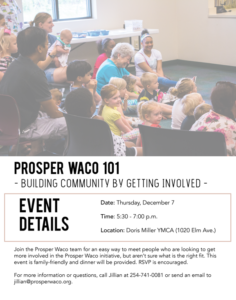 The work continues into 2018! If you want to get involved in the Prosper Waco initiative, there will be a Prosper Waco 101 session on Thursday, December 7 at the Doris Miller YMCA starting at 5:30 p.m. This fun and informative session will cover the history of the Prosper Waco initiative, some current projects, and ways to get involved. This is a child-friendly event and dinner will be provided. Please RSVP as space is limited!
The work continues into 2018! If you want to get involved in the Prosper Waco initiative, there will be a Prosper Waco 101 session on Thursday, December 7 at the Doris Miller YMCA starting at 5:30 p.m. This fun and informative session will cover the history of the Prosper Waco initiative, some current projects, and ways to get involved. This is a child-friendly event and dinner will be provided. Please RSVP as space is limited!
If you are unable to attend the Prosper Waco 101 event, but still want to be involved, please email Jillian Jones ([email protected]) or call 254-741-0081.
From the entire Prosper Waco team, happy holidays and we look forward to the great work our community will do in 2018!
 Christina Helmick is the director of communication at Prosper Waco. She is a recent graduate of Baylor University with a BA in Journalism, Public Relations & New Media. Originally she is from Washington, D.C., but has stayed in Waco post-graduation. She is an active mentor at J.H. Hines Elementary School, enjoys spending time with her family and watching Baylor football. Sic ’em Bears!
Christina Helmick is the director of communication at Prosper Waco. She is a recent graduate of Baylor University with a BA in Journalism, Public Relations & New Media. Originally she is from Washington, D.C., but has stayed in Waco post-graduation. She is an active mentor at J.H. Hines Elementary School, enjoys spending time with her family and watching Baylor football. Sic ’em Bears!
The Act Locally Waco blog publishes posts with a connection to these aspirations for Waco. If you are interested in writing for the Act Locally Waco Blog, please email [email protected] for more information.
By Christina Helmick
Henry Ford once said “Coming together is a beginning; keeping together is progress; working together is success.” Personally, I think that quote described the atmosphere during the 2017 Prosper Waco Annual Summit. On October 12, hundreds of community members gathered at the Waco Convention Center to celebrate the work our community has begun by working together.
The evening’s program focused on where we’ve been, where we are and where we are going. The night kicked off with opening remarks by Dr. Marcus Nelson, the superintendent for Waco ISD. There was such excitement in the room between those who were hearing him speak for the first time and those who knew how his words capture an audience. Following Dr. Nelson, our director of community engagement, Liz Ligawa, and a panel of grassroots community leaders took the stage to talk about why showing up and sharing your perspective is important to community change.
Next, Matthew Polk highlighted initiative efforts led by community partners that are currently being implemented such as Project Link, System of Care and the Community Loan Center. Then, a panel of seven community leaders took the stage to answer questions about efforts addressing education, health and financial security outcomes. Panelists answered questions about what data the organizations involved are tracking and how community members can get involved. With the event coming to a close, three speakers detailed efforts with big plans for 2018.
At the end of the night, one of our goals was to ensure all people at the Summit understood there are ways to get involved starting that night. Each person can make a commitment to get involved by working together to improving overall quality of life in Waco. So, we asked people to complete a commitment card. The card highlighted the different opportunities people can take to become involved. We listed a few of the ways to become involved like mentoring and joining work happening at the neighborhood-level. Forty-four people committed to being involved and working together to achieve the community’s goals. Of the 44 people who made their commitment at the Summit:
- 17 identified that they would like to be a mentor
- 4 committed to recruiting mentors
- 9 committed to hosting internships at his/her organization or company
- 4 committed to identifying internship opportunities at local businesses
- 17 want to attend a Prosper Waco 101 event
- 18 want to join a Strong Neighborhood Team
- 29 want to learn more about ways to get involved in the Prosper Waco initiative
If you weren’t able to attend the Summit or didn’t get to fill out a card, make your commitment by clicking here! Collectively, we can make our own contributions to achieving the goals our community has set. If you have any questions about the opportunities to get involved, reach out to Jillian Jones in our office ([email protected]) or call 254-741-0081.
To download the feedback from participants, click here. If you missed the Summit and would like to watch the entire evening, you can click here.
Henry Ford was right—it’s by working together that we, as a community, will see success.
 Christina Helmick is the director of communication at Prosper Waco. She is a recent graduate of Baylor University with a BA in Journalism, Public Relations & New Media. Originally she is from Washington, D.C., but has stayed in Waco post-graduation. She is an active mentor at J.H. Hines Elementary School, enjoys spending time with her family and watching Baylor football. Sic ’em Bears!
Christina Helmick is the director of communication at Prosper Waco. She is a recent graduate of Baylor University with a BA in Journalism, Public Relations & New Media. Originally she is from Washington, D.C., but has stayed in Waco post-graduation. She is an active mentor at J.H. Hines Elementary School, enjoys spending time with her family and watching Baylor football. Sic ’em Bears!
The Act Locally Waco blog publishes posts with a connection to these aspirations for Waco. If you are interested in writing for the Act Locally Waco Blog, please email [email protected] for more information.
By Christina Helmick
I recently was at a communications conference in Miami and an attendee asked the speaker, “What are your tips on communicating all the great things happening in your organization and how they all fit into the bigger picture?” I moved to the edge of my seat to be sure I could hear the speaker’s response. The speaker answered with a chuckle followed by what he considered to be a communication rule —“Nonprofits rely heavily on the use of success stories to communicate. Along with the success story, make sure you tie it back into how it fits into the bigger picture. One way I’ve typically tied those two things together with is the use of data.” I thought to myself jackpot!
As the backbone organization of the Prosper Waco initiative, one of our roles is to communicate the successes of the initiative, highlight the partners involved and tie all that back to the big picture through the data that we are tracking. One way the staff pulls all of this together is through an annual report. Around this time each year, the staff produces an annual report that focuses on the progress of the initiative, the efforts within the Prosper Waco umbrella and how organizations and residents can become involved in the initiative.
The 2016-2017 Prosper Waco Initiative Report is ready for distribution! The report is the one-stop-shop for residents, organizations, employers and others to learn about the history of the Prosper Waco initiative, efforts within the Prosper Waco initiative umbrella, initiative goals, key partners and how residents and organizations can become involved in improving overall quality of life in Waco.
For example, on page 12 you will see a graph illustrating the trends in school readiness for Waco ISD pre-kindergarten students. You will notice a decrease in proficiency from Fall 2015 to Fall 2016. The graph also shows the target and overall goal of school readiness—increase the percentage of Kindergarten-ready students (which would be a target goal of 22%).
To the left of the graph of page 13, you will see an explanation of one of the many efforts addressing the School Readiness goal. The effort highlighted is “Reach Out & Read,” a collaborative approach to improving school readiness that utilizes doctors and nurses to help parents understand the importance of reading to their children.
As you peruse the entire report, you will notice the various, cross-sector efforts, led by multiple partners, that are addressing the goals of the initiative. Pages 36 and 37 are an overview of the efforts within the Prosper Waco umbrella and what goal(s) of the initiative each is addressing.
As an organization we try to emphasize there is no silver bullet in alleviating poverty. You may think, “Gee, there is so much going on, why should we keep at it?” Yes, our community is doing amazing work, and we still have work to do. That’s why it is so important to continue the coordinated, cross-sector conversations happening at the Working Groups. Those conversations are helping to align activities to have the biggest impact possible.
It is also important to continue listening to the community’s priorities as in the “What’s Up, Waco?” visioning series, and integrating those priorities into the organization and systems-level conversations happening within the initiative.
And it is important to continue adding new people who are willing to invest in this work, like you. Contact Jillian Jones ([email protected] or call 254-741-0081) to learn how to become involved and to request a digital or physical copy of the 2016-2017 Prosper Waco Initiative Report.
 Christina Helmick is the director of communication at Prosper Waco. She is a recent graduate of Baylor University with a BA in Journalism, Public Relations & New Media. Originally she is from Washington, D.C., but has stayed in Waco post-graduation. She is an active mentor at J.H. Hines Elementary School, enjoys spending time with her family and watching Baylor football. Sic ’em Bears!
Christina Helmick is the director of communication at Prosper Waco. She is a recent graduate of Baylor University with a BA in Journalism, Public Relations & New Media. Originally she is from Washington, D.C., but has stayed in Waco post-graduation. She is an active mentor at J.H. Hines Elementary School, enjoys spending time with her family and watching Baylor football. Sic ’em Bears!
The Act Locally Waco blog publishes posts with a connection to these aspirations for Waco. If you are interested in writing for the Act Locally Waco Blog, please email [email protected] for more information.
By Liz Ligawa
Waco has been my home for a while now, but I am still learning how much there is to this beloved city. For instance, did you know that there are an estimated 700 non-profit organizations in Waco? I know- that’s a lot, but it’s not necessarily a bad thing. With the existence of so many non-profits, I don’t question that Waco is a community that cares. It shows me that there are many people and organizations working to make the lives of Wacoans better. However, I am curious about a few things. And as a result of my curiosities, I approached my work toward improving the lives Wacoans differently, and would like to share a few lessons I have learned along the way from the “What’s Up, Waco?” community visioning series.
Lesson 1: Ask powerful questions.
I have just reached my one year anniversary with Prosper Waco, and as the collective work of community change has continued, I have often been asked about the community’s priorities around this work. What I quickly learned is that many of us in the non-profit world were interested in an answer to a question that we were not really asking. So this year, the Prosper Waco Community Engagement Council and I focused on bringing forward community priorities through a three-series long conversation: “What’s Up, Waco?”
If you were to walk in on one of these events, you might mistake the DJ’s tunes, the green leis, and the hopeful atmosphere to be someone’s family reunion you stumbled upon. That would be a fair assumption, but don’t overlook what is really going on– the hard work of casting a vision and building a team around that vision.
The question that started the conversation was, “What are the results you want to see?” It may not seem like a powerful question, but it is not a question we frequently ask. Whether we are working with individuals, groups, or communities, I’ve learned that it is always appropriate to ask. The charts below map out where each community has decided to focus their work:
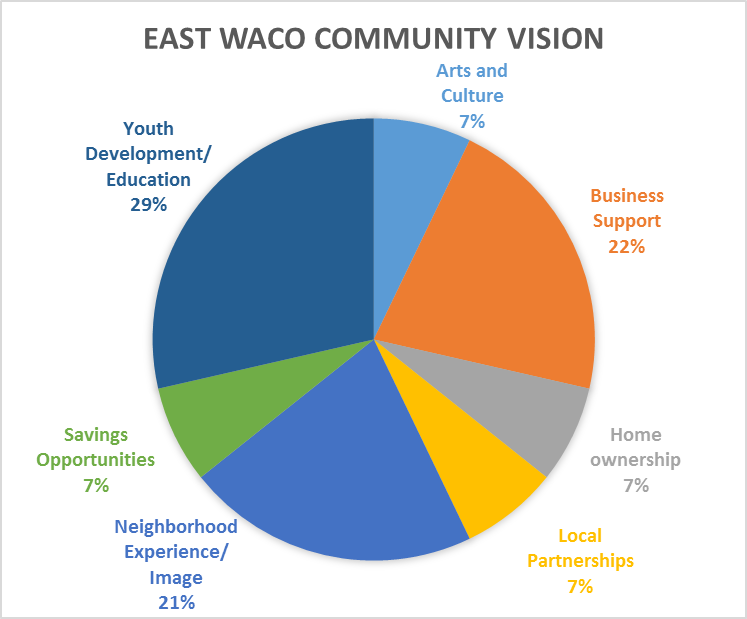
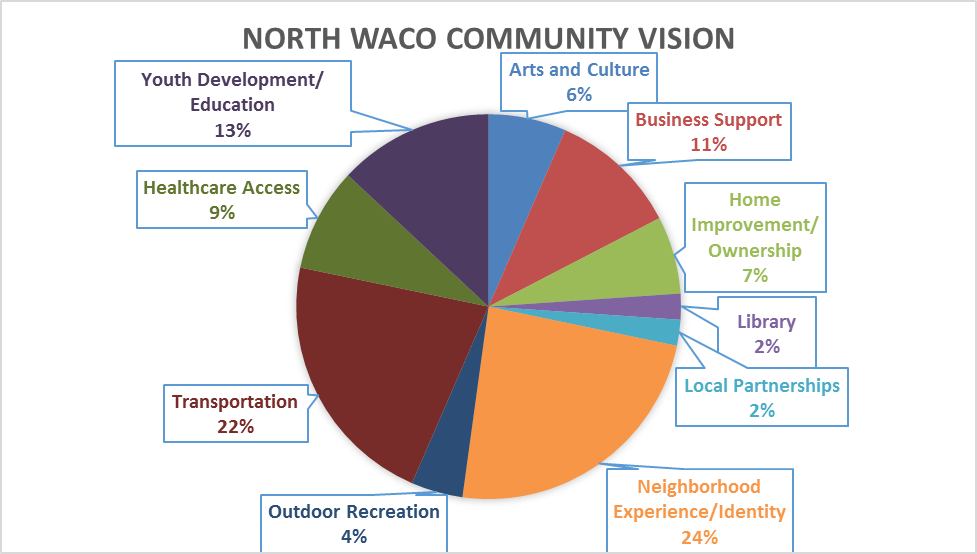
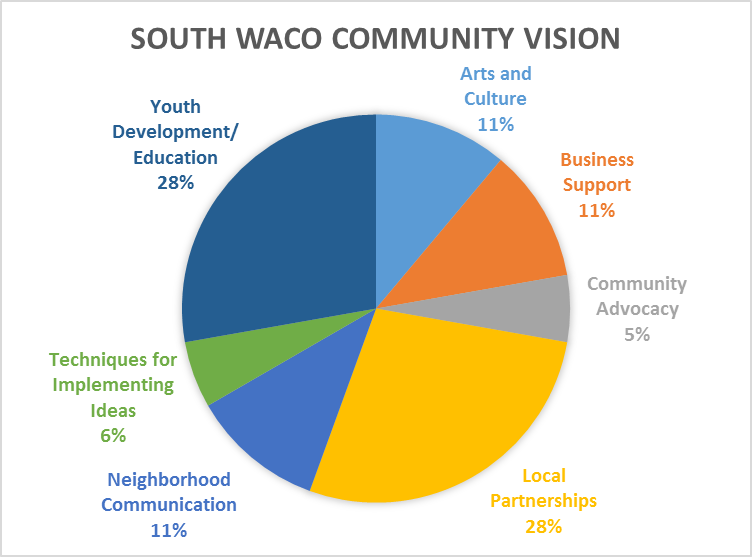
Lesson 2: Pity doesn’t help us listen- Empathy does.
In the field of non-profit work, and other helping professions, we find ourselves in a bit of a quandary sometimes. We are drawn to this work because of the change we want to see in the world, but often our desire to see change in the lives of people and communities paints a certain picture in our minds about people. We tend to see people through what data says about them, or their community. We receive messages about people as we look solely at the schools in their communities. We subscribe to narratives about people without even having to think about it. Messages are constant. Messages contribute to our understanding of people. Messages can be completely wrong. Try Googling the word “pregnant” and look at the images that come up. Now, put the word “poverty” in front of the word “pregnant” and hit search. Look at the images. Do you notice a difference?
I work with people in communities who bear heavy burdens of the stories that precede them before they even have a chance of showing up. Stories that are heavily influenced by an outsider’s perspective. Stories which play a role in every interaction. What learning has been affirmed for me in this series is that if I want to work with people, it is my responsibility to continually work at checking my biases and my pity (of whatever nature) at the door. To commit to the hard work of listening to truth, I must listen with empathy and not pity. When we engage people with pity, we run the risk of not affirming the agency of that person to contribute toward their own solutions for change. When we lead with empathy, we open ourselves up to learn.
Lesson 3: People are amazing- We need to level up!
When I decided that my own answers to other people’s problems would not create the change I hope to see in our community, I was afforded the opportunity to learn a lot more about the historical narratives and processes of change each community has been through. As they reflected on the history of their community, and started putting together strategies toward their vision, I learned how powerful truth is in the work of restoring our communities, and how important it is for that truth to be heard. In fact, 98% of more than 100 participants that have participated in the visioning so far responded “Agree” or “Strongly Agree” to the survey items: “I feel like my voice was heard”, and “This information was helpful to me, and/or my organization”. So, this last lesson is about my part, our part, in coming together. I leveled up by becoming proximate to the beautiful people and communities I hoped to see change in. I leveled up by listening to the truths they shared. And I leveled up by choosing to see what great things already exist, and what greater things we can create together.
Will you continue to level up with me? Our last series, “What’s Best?” will focus on putting the finishing touches on the vision, and finalizing the team that will carry this work forward. These communities are putting in good work, and change is on the way because of it. But it started by asking the right questions first.
What’s Best Series Event Information:
- Saturday, Sept. 9, 11:00 a.m. – 2:00 p.m., at Doris Miller YMCA
- Saturday, Sept. 16, 11:00 a.m. – 2:00 p.m., University High School Café
- Saturday, Sept. 23, 11:00 a.m. – 2:00 p.m., TBD (we will send you information soon with the location!)
For more information about What’s Up, Waco?, you can send me an email at [email protected].
 Elizabeth Ligawa is a recent graduate from Truett Theological Seminary, and the Diana R. Garland School of Social Work, earning both her Master of Divinity, and Master of Social Work. Though her prized role is being a mother to her dear son, Elijah, Liz has a love for encouraging people to come together in ways that engender healthy communities. Her role as the Director of Community Engagement at Prosper Waco allows her the room to work in and among the many faces of her beloved Waco community. She may be reached at [email protected].
Elizabeth Ligawa is a recent graduate from Truett Theological Seminary, and the Diana R. Garland School of Social Work, earning both her Master of Divinity, and Master of Social Work. Though her prized role is being a mother to her dear son, Elijah, Liz has a love for encouraging people to come together in ways that engender healthy communities. Her role as the Director of Community Engagement at Prosper Waco allows her the room to work in and among the many faces of her beloved Waco community. She may be reached at [email protected].
The Act Locally Waco blog publishes posts with a connection to these Aspirations for Waco. If you are interested in writing for the Act Locally Waco Blog, please email [email protected] for more information.
By Christina Helmick
If you lived in Waco in 2014, then you might have heard about the Upjohn Economic Development Study. If you didn’t live in Waco then (or didn’t hear about it), the City of Waco commissioned this study to identify the components of an economic development strategy that could concurrently enhance the local economic base and provide a sustainable pathway for economically-disadvantaged Waco residents toward full-time, permanent employment. You can find this data-driven report by clicking here!
During the summer of 2015, Ashley Bean Thornton wrote a blog post about a local event that focused on hiring individuals who were returning to society from incarceration. The blog caught the eye of a manager, Robert Saucedo, of a company called Reinforced Earth Company, RECO. Ashley and Robert started a conversation about how hiring needs and the community “support system” for job seekers. This conversation led to Ashley facilitating a group known as the Waco Foundational Employment Network for about a year and a half. The Network discussed referrals between social service agencies, talked to local employers about their hiring needs, and discussed how organizations can work together to better support job seekers to not only find jobs, but keep jobs.
As the Network continued to meet, local employers were drawn to participate due to the concept of having one point of contact for them to call if an employee (who was referred by the Network) needed some type of support, such as housing, transportation or childcare. Through the various conversations and increased interest by the business sector, the Waco Foundational Employment Network evolved into the Waco Employer Resource Network (WERN). This Network follows the model identified in the Upjohn study previously mentioned.
The Waco Employer Resource Network received funding from City of Waco’s Budget and Audit Committee in July of this year to fund a three-year pilot WERN program. This funding allows for two full-time positions to implement the work of the network. Caritas of Waco has hired a Success Coach who will work directly with employed individuals to provide the supports necessary to help them maintain employment. HOT Goodwill will employ a Liaison whose role will be to facilitate the network and serve as a single point of contact for employers seeking to partner with community agencies to hire job seekers and/or refer employees to resources. Goodwill is still conducting interviews for this position with the goal to train WERN staff during August and launch the WERN pilot project mid-September.
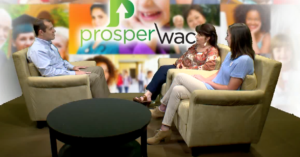 To learn more about the Network, watch this month’s Prosper Waco episode on the City Cable Channel.
To learn more about the Network, watch this month’s Prosper Waco episode on the City Cable Channel.
As this pilot program kicks off in September, there is still room for local employers and those seeking employment to jump on the WERN train! Reach out to Tiffany Fry for more information by sending an email to [email protected].
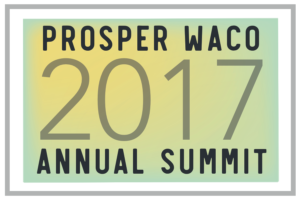 These are the type of innovative, collaborative approaches that are working to advance the goals of the Prosper Waco initiative. A big community-wide THANK YOU goes to Caritas of Waco and HOT Goodwill for being the lead agencies of WERN. If you want to learn more about WERN and other collaborative approaches community organizations are leading to improve Waco, make sure to attend the #Summit17 happening on Thursday, October 12 at the Waco Convention Center!
These are the type of innovative, collaborative approaches that are working to advance the goals of the Prosper Waco initiative. A big community-wide THANK YOU goes to Caritas of Waco and HOT Goodwill for being the lead agencies of WERN. If you want to learn more about WERN and other collaborative approaches community organizations are leading to improve Waco, make sure to attend the #Summit17 happening on Thursday, October 12 at the Waco Convention Center!
 Christina Helmick is the director of communication at Prosper Waco. She is a recent graduate of Baylor University with a BA in Journalism, Public Relations & New Media. Originally she is from Washington, D.C., but has stayed in Waco post-graduation. She is an active mentor at J.H. Hines Elementary School, enjoys spending time with her family and watching Baylor football. Sic ’em Bears!
Christina Helmick is the director of communication at Prosper Waco. She is a recent graduate of Baylor University with a BA in Journalism, Public Relations & New Media. Originally she is from Washington, D.C., but has stayed in Waco post-graduation. She is an active mentor at J.H. Hines Elementary School, enjoys spending time with her family and watching Baylor football. Sic ’em Bears!
The Act Locally Waco blog publishes posts with a connection to these aspirations for Waco. If you are interested in writing for the Act Locally Waco Blog, please email [email protected] for more information.
By Liz Ligawa
There is something endearing about “firsts.” Before them, life is a bit different and requires our participation in a certain way. First words. First steps. Even our first crush- which sometimes ends up becoming our first heartbreak. Firsts are important. Perhaps the significance lies in how firsts introduce us into a new way of being in the world. There are usually many similar incidents that follow the initial event, but nothing else has quite an impact on us as the first. As I rambled on in a half-conversing/ half-processing-out-loud space of contemplation as I prepared for this piece, I realized that I had developed a deep sense of intrigue around the idea of firsts. And for these next moments, I want to share how firsts, especially on an institutional level, are just as worthy of attention, celebration, and commitment as our own individual experiences.
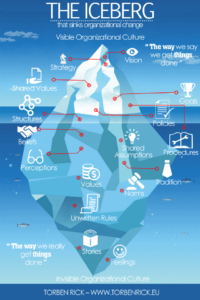 In my professional career, I have experienced something that is common, but still makes me wonder. I often find myself being the first. Whether it is the first in a specific department, or the first in an entire organization, the experiences are similar. The first I am speaking of is being the first African-American. In settings where individuals have little experience with one another, the tendency is to operate from a set of generalizations and assumptions about a specific group. This type of relational process was investigated in a study which addressed academic success in schools: “In the absence of prior contact with a person or institution, participants may rely on the general reputation of the other, and also on commonalities of race, gender, age, religion or upbringing….The more interaction parties have over time, the more willingness to trust one another is based upon the party’s actions,” (Brewster & Railsback, 2003). When you are first, you know it.
In my professional career, I have experienced something that is common, but still makes me wonder. I often find myself being the first. Whether it is the first in a specific department, or the first in an entire organization, the experiences are similar. The first I am speaking of is being the first African-American. In settings where individuals have little experience with one another, the tendency is to operate from a set of generalizations and assumptions about a specific group. This type of relational process was investigated in a study which addressed academic success in schools: “In the absence of prior contact with a person or institution, participants may rely on the general reputation of the other, and also on commonalities of race, gender, age, religion or upbringing….The more interaction parties have over time, the more willingness to trust one another is based upon the party’s actions,” (Brewster & Railsback, 2003). When you are first, you know it.
Almost 10 years ago, our nation experienced a significant first. When Senator Obama became President, our country entered a new way of being in the world. If our country had any reason to be celebratory, then this was it. Even with our disordered and painful history concerning race, we elected our first African-American president! But take a look at some of the other things that occurred during that time. There were nooses displayed on college campuses, Google searches for the n-word spiked, stuffed dolls were hung reminiscent of our country’s lynching history, and many other responses to a change in the original pattern. Although there was much to celebrate in our progress, there was much support that our institution needed from us to assist it through its first.
A couple weeks ago, I attended the reception of Waco ISD’s first African-American superintendent, Dr. Marcus Nelson. In his address to a very welcoming audience, he was engaging, transparent, and candid about his strong belief in serving children and his commitment to their future. The room was filled with so much hope that evening. As Dr. Nelson recalled the shock and pride among the elders he recently met along the route of the Juneteenth Parade, I recalled that same type of pride I witnessed among elders as I waited in line the six hours to cast my vote on Election Day in 2008. Our elders were experiencing a reality they thought they secured for their grandchildren- not expecting to taste it in their lifetime. I understood that their tears, and their hope was a debt already paid. And it was mine to do the work of this hour.
Whenever we break patterns that have been similar for a long time (like the pattern of U.S. Presidents), it is important for us to pay attention to the things that are also happening around that shift. When Senator Obama was elected President, it not only meant something but it also did something. Systems do not change easy, and the unwritten rules of their arrangements critically deserve our attention in times of change. As I welcomed Dr. Nelson with pride, hope, and expectation, I also committed to pay close attention to what our district would need from us during its institutional first. We have reason to celebrate, but we also must remember that as our institution is going through a first, it will be our willingness to have direct contact and conversation with one another that will make the biggest difference. And while we’re at it, let’s make these kinds of things normative. It’s such a great time be in Waco!
Welcome, Dr. Nelson! We’ve been waiting for you.
 Elizabeth Ligawa is a recent graduate from Truett Theological Seminary, and the Diana R. Garland School of Social Work, earning both her Master of Divinity, and Master of Social Work. Though her prized role is being a mother to her dear son, Elijah, Liz has a love for encouraging people to come together in ways that engender healthy communities. Her role as the Director of Community Engagement at Prosper Waco allows her the room to work in and among the many faces of her beloved Waco community. She may be reached at [email protected].
Elizabeth Ligawa is a recent graduate from Truett Theological Seminary, and the Diana R. Garland School of Social Work, earning both her Master of Divinity, and Master of Social Work. Though her prized role is being a mother to her dear son, Elijah, Liz has a love for encouraging people to come together in ways that engender healthy communities. Her role as the Director of Community Engagement at Prosper Waco allows her the room to work in and among the many faces of her beloved Waco community. She may be reached at [email protected].
The Act Locally Waco blog publishes posts with a connection to these Aspirations for Waco. If you are interested in writing for the Act Locally Waco Blog, please email [email protected] for more information.
Reference
Brewster, C. & Railsback, J. (2003). Building trusting relationships for school improvement: Implications for principals and teachers. Oregon, USA: Northwest Regional Educational Laboratory.
By Elizabeth Ligawa
We wear the mask that grins and lies,
It hides our cheeks and shades our eyes-
This debt we pay to human guile;
With torn and bleeding hearts we smile
— Excerpt from Paul Laurence Dunbar’s poem, “We Wear the Mask”
We wear the mask the grins and lies
The last time I was asked the question, “How are you?” was last night at H-E-B. I usually splurge on late night errands when I have a child-free night, and I was taking full advantage of the late operating hours. Before my visit to the store, I had just finished up a painful conversation with a friend going through a very difficult time. My heart was heavy. My mind was still trying to wrap itself around the traumatic experiences that were shared with me. My spirit was low. The inquiry came as I was placing my items for purchase on the conveyor belt, still in the fog of my previous conversation: “How are you?,” the cashier asked. My response was a polite, socially acceptable lie: “I’m doing just fine, thank you. And you?”
In situations like this one (being in line at the grocery store to be exact), we are usually not expected to engage in deep conversations about life, or suffering, or innovative approaches to a long-standing challenge in our community. No one is expected to describe Anselm’s ontological argument in the bread aisle next to the pickles, or to participate in a solution that will protect our most vulnerable residents. But, if you wanted to have a meaningful conversation around a difficult topic, where would you go?
It hides our cheeks and shades our eyes
In the last several months, I have been approached by a growing number of faith and community leaders who are genuinely seeking guidance on techniques and strategies of engaging people around one of these difficult topics: race. When it happens, I am always honored by this inquiry because of the risk involved in the asking. Waco is a very interesting place when it comes to race, and I am finding out more and more that while we see it, we usually do not know where to go with this conversation? Do we talk about our community’s history, and its contributions to how race plays out with regard to outcomes and opportunities? Are we seeking to understand the missing racial diversity in our congregations, or among other community institutions? Do we share in our understanding of the implications of race?
In topics like race, where we may not feel confident in our navigation skills, we follow similar patterns of dialogue that resemble my engagement level with the cashier at HEB: we politely wear our mask. We politely decline the opportunity to meaningfully engage.
This debt we pay to human guile; With torn and bleeding hearts we smile
To be clear, I am not promoting the idea that we should share the questions of our hearts with the cashiers at H-E-B, or the baristas at Starbucks, or even the person sitting next to you as you’re reading this post. What I am saying is that a community functions much in the same way as an individual. And as a community practitioner, I am particularly interested in how you (as a community) are having these conversations about what impacts you. How do you feel about the local impact of federal policies? What are you doing with the questions that you are not sure are welcome in polite company? How are you dealing with issues concerning race and your organization, or community?
There is a way to have these conversations well, and it is as easy and accessible as having different modes of facilitation as part of your tool belt. On June1-2, the Public Deliberation Initiative will be hosting its inaugural “Civic Life Summit: Doing Democracy Differently”. At this summit, you will learn how to: 1) Build mutual respect and understanding across race, religion, and more; 2) Move beyond divisiveness to work together for greater good; 3) Identify common ground across difference, and potential steps forward together, and 4) and Develop a framework for public engagement within your group or sphere of influence. To register for the Summit, please click here. The cost is $95 per individual with limited scholarships available. For more information, please contact Erin Payseur by sending an email to [email protected].
We can embrace conversations with courage. We can bring confidence in engaging these challenging topics. We can produce change. But first, let’s talk.
 Elizabeth Ligawa is a recent graduate from Truett Theological Seminary, and the Diana R. Garland School of Social Work, earning both her Master of Divinity, and Master of Social Work. Though her prized role is being a mother to her dear son, Elijah, Liz has a love for encouraging people to come together in ways that engender healthy communities. Her role as the Director of Community Engagement at Prosper Waco allows her the room to work in and among the many faces of her beloved Waco community. She may be reached at [email protected].
Elizabeth Ligawa is a recent graduate from Truett Theological Seminary, and the Diana R. Garland School of Social Work, earning both her Master of Divinity, and Master of Social Work. Though her prized role is being a mother to her dear son, Elijah, Liz has a love for encouraging people to come together in ways that engender healthy communities. Her role as the Director of Community Engagement at Prosper Waco allows her the room to work in and among the many faces of her beloved Waco community. She may be reached at [email protected].
The Act Locally Waco blog publishes posts with a connection to these Aspirations for Waco. If you are interested in writing for the Act Locally Waco Blog, please email [email protected] for more information.
By Brittany Fitz-Chapman
This past month, Prosper Waco teamed up with Waco Foundation and Cooper Foundation to bring Marcos Marquez, a results-based accountability (RBA) expert, to Waco to provide insight into how data can help drive decision-making. Result-based accountability is a disciplined method of thinking and taking action to help organizations get from talk to action quickly.
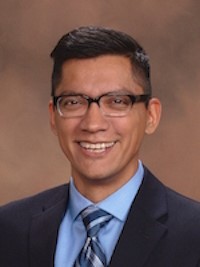 Marcos holds over a decade of experience in leading communities to using data effectively and ultimately achieving improved outcomes. Prior to joining Clear Impact, he served as the Results Manager for the United Way of San Antonio and Bexar County for its $24 million Eastside Promise Neighborhood and $7 million Annie E. Casey Foundation/Dual Generation initiatives. Currently, Marcos serves as the Clear Impact project lead to the Annie E. Casey Foundation for its performance management system through the Research, Evaluation, Evidence and Data unit. Also, he is project lead for the State of Texas Department of Family and Protective Services for its Home Visiting program.
Marcos holds over a decade of experience in leading communities to using data effectively and ultimately achieving improved outcomes. Prior to joining Clear Impact, he served as the Results Manager for the United Way of San Antonio and Bexar County for its $24 million Eastside Promise Neighborhood and $7 million Annie E. Casey Foundation/Dual Generation initiatives. Currently, Marcos serves as the Clear Impact project lead to the Annie E. Casey Foundation for its performance management system through the Research, Evaluation, Evidence and Data unit. Also, he is project lead for the State of Texas Department of Family and Protective Services for its Home Visiting program.
After learning all that Marcos has been involved with, we couldn’t wait to get him to Waco! Marcos visited Waco from March 15 to 17 to discuss results-based accountability and previewing Clear Impact’s results scorecard with local organizations! While he was in town, Marcos met with more than 20 nonprofit organizations, as well as city staff and our local foundations.
Building on his experience with large collective impact initiatives, he also conducted an evaluation of the Prosper Waco backbone organization and the progress of the initiative. While we participated in our own deep-dive session with this RBA guru, we talked about how we need to continue to communicate what is going on within the initiative and focus on building the data capacity of our local organizations.
One way the Prosper Waco backbone aims to build the capacity of local organizations is through the Clear Impact Scorecard—a community tool which is used to help our local organizations collect data and track outcomes. The tool provides an abundance of benefits, such as:
- a user-friendly cloud-based system to track measures of interest
- the ability to create visuals to aid in storytelling
- a way to track aggregated performance measures against the broader community-level indicators of change.
I have been meeting with various organizations across the community to get them connected to this data tool, but we know there are still organizations out there who want to learn more about the RBA process, Clear Impact and the scorecard! If you’re reading this and thinking I could use a system to help with tracking outcomes for my organization or Results-Based Accountability is the exact model we need to be using in our organization, I am your go-to person. Contact me to set a meeting time to sit down and talk about your org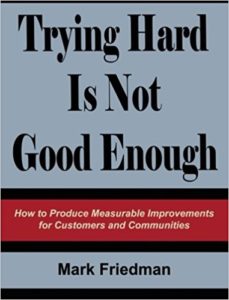 anization’s data and how the scorecard can be a tool for you. My email address is [email protected] or you can call her by dialing 741-0081.
anization’s data and how the scorecard can be a tool for you. My email address is [email protected] or you can call her by dialing 741-0081.
In the meantime, you can check out the book Trying Hard is Not Good Enough by Mark Friedman. The book discusses results-based accountability and how it can be used to improve quality of life in communities, cities, states and nations! If you read the book, let us know your thoughts by tweeting us at @ProsperWaco and using #Prosper254!
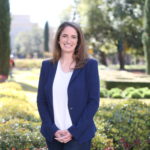
Brittany Fitz-Chapman works at Prosper Waco as the Director of Data and Research. She is a graduate of Baylor University. She holds two master’s degrees and is pursuing her PhD in Sociology at Baylor. She has engaged in community research in Waco and has published professional articles about what makes communities strong. She enjoys exploring Waco with her husband and their two puppies!
The Act Locally Waco blog publishes posts with a connection to these aspirations for Waco. If you are interested in writing for the Act Locally Waco Blog, please email [email protected] for more information.
by Liz Ligawa
Can you remember a time when you were not believed? As you think back to that time, how do you remember it impacting you? Was doubt able to sneak in and influence the credibility of your own story? Perhaps, as a response, you became a little more selective with what you shared, or at least, with whom you shared. I posed this same question to about 50 undergraduate students in a Human Diversity class where I was the guest lecturer. What we learned, as a class, of these kind of events was telling: incidents where our experiences were invalidated by doubt or unbelief began to invisibly shape how we related to others, but more significantly, we tended to wrap our truths with silence as we learned to navigate a world that had little room for our perspective.
This simple exercise I conducted with that class still resonates with me. It speaks of how one human experience can shape so many others. Although the examples shared were relatively light in nature, and were part of common childhood experiences, the impact of those incidents on the future behavior of these truth-sharers was great. I was not expecting behavioral changes to be the result of these incidents, but they were.
In our work, we speak a lot about collaboration. Our current posture toward collaboration comes from the realization that the work, and the outcomes we hope to achieve from this work, cannot happen without the collective work of many hands. In our urgency to approach the work with these many hands, however, I have observed a common forgetting (of sorts). We seem to forget that those hands are connected to people, and people function through relationships. In her book titled, Teaching Peace: A Restorative Justice Framework for Strengthening Relationships, Dr. Beverly Title alerts us to pay attention in this way. “Every relationship is valuable, no matter how insignificant it may first appear, as it is a potential window to wisdom,” (Title, 2011). Sometimes in our ambition to work, we forget that the hands are connected to people, and that it is in those people where the wisdom for the work is contained.
The Aspen Institute recently published a helpful review of community change initiatives (CCIs) over the last two decades so that the work going forward can be better informed. In their publication, the voice of relationship was also heralded as a necessary component toward change: “Comprehensive change in the most disinvested communities required effective working relationships across a multitude of community, private, and public institutions. Since poor communities had long been disconnected from outside entities, the key to sustained long-term change was to build cooperative connections,” (Kubisch, Auspos, Brown, & Dewar, 2010). In social work, we consider human relationships central to change. This is our value. So, how does this play out?
When joining the work of marginalized communities, or communities experiencing significant change, I pay attention to the role that disenfranchisement, or disconnection, has played in the life of the community. Feeling unheard is a great suffering. Not only is it difficult navigating systemic barriers that function oppressively, but it is also not the first thing that people want to talk about. Life is life, and most of us are busy just going about it. So, as I go about learning what life is like, I look for the many ways available to build the trust requisite to connect the hands to the work. Sometimes it means I show up. Sometimes it means I share. But most often, I find that trust is built on an ordinary path that many have left grown over. The path to trust is simply believing the truth that is entrusted to you. And, in the dignity of those every day moments, the work finally becomes shared, and perhaps our investments of hope fulfilled.
 Elizabeth Ligawa is a recent graduate from Truett Theological Seminary, and the Diana R. Garland School of Social Work, earning both her Master of Divinity, and Master of Social Work. Though her prized role is being a mother to her dear son, Elijah, Liz has a love for encouraging people to come together in ways that engender healthy communities. Her role as the Director of Community Engagement at Prosper Waco allows her the room to work in and among the many faces of her beloved Waco community. She may be reached at [email protected].
Elizabeth Ligawa is a recent graduate from Truett Theological Seminary, and the Diana R. Garland School of Social Work, earning both her Master of Divinity, and Master of Social Work. Though her prized role is being a mother to her dear son, Elijah, Liz has a love for encouraging people to come together in ways that engender healthy communities. Her role as the Director of Community Engagement at Prosper Waco allows her the room to work in and among the many faces of her beloved Waco community. She may be reached at [email protected].
The Act Locally Waco blog publishes posts with a connection to these Aspirations for Waco. If you are interested in writing for the Act Locally Waco Blog, please email [email protected] for more information.
